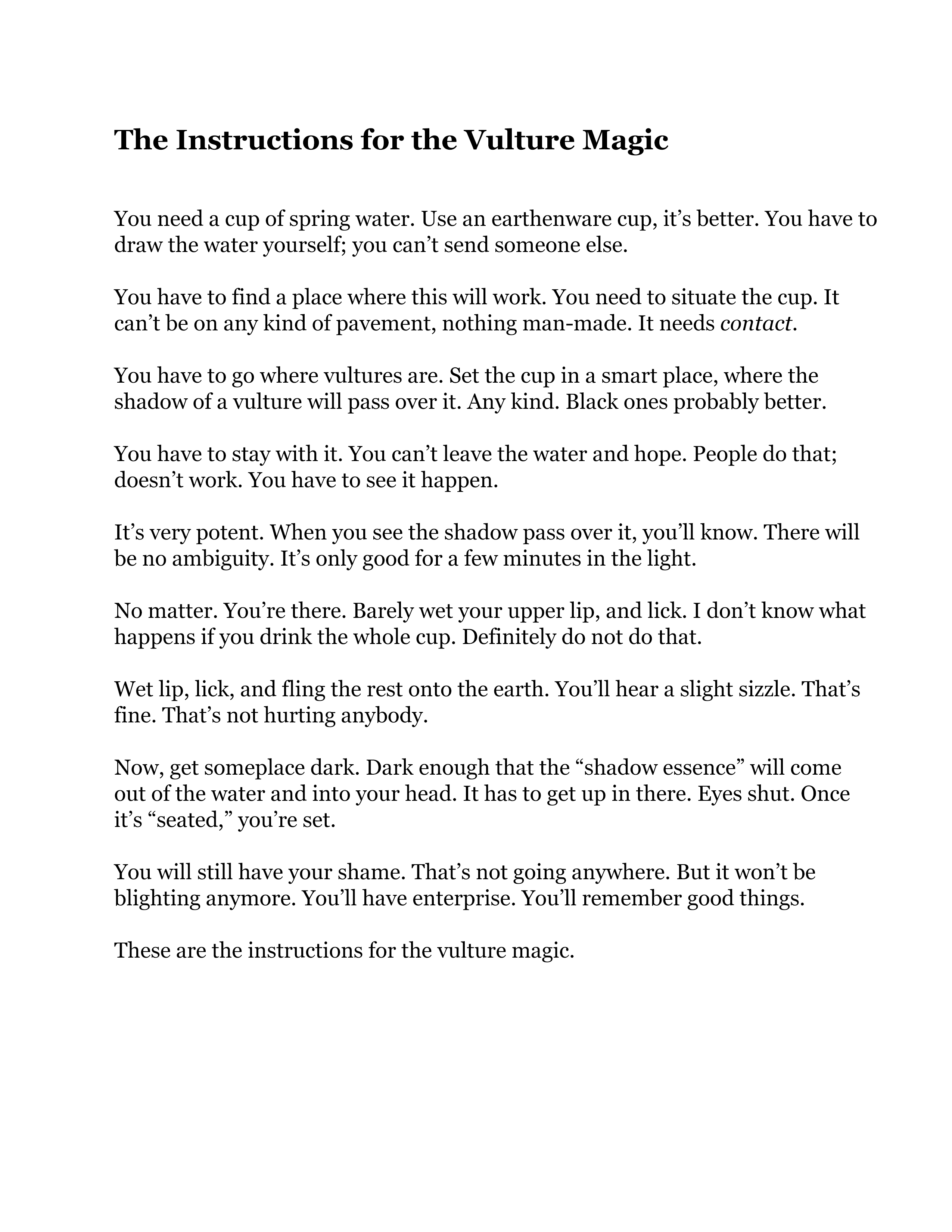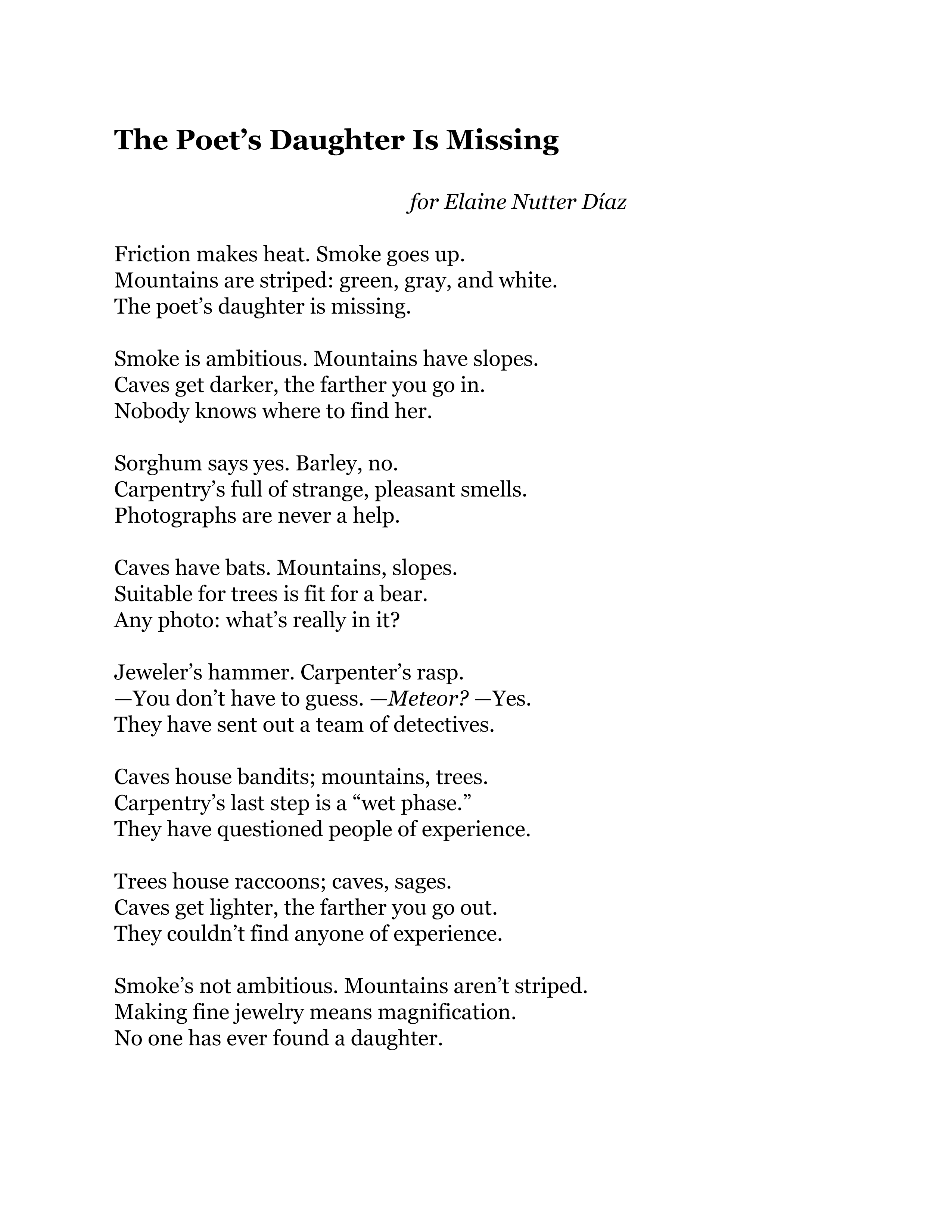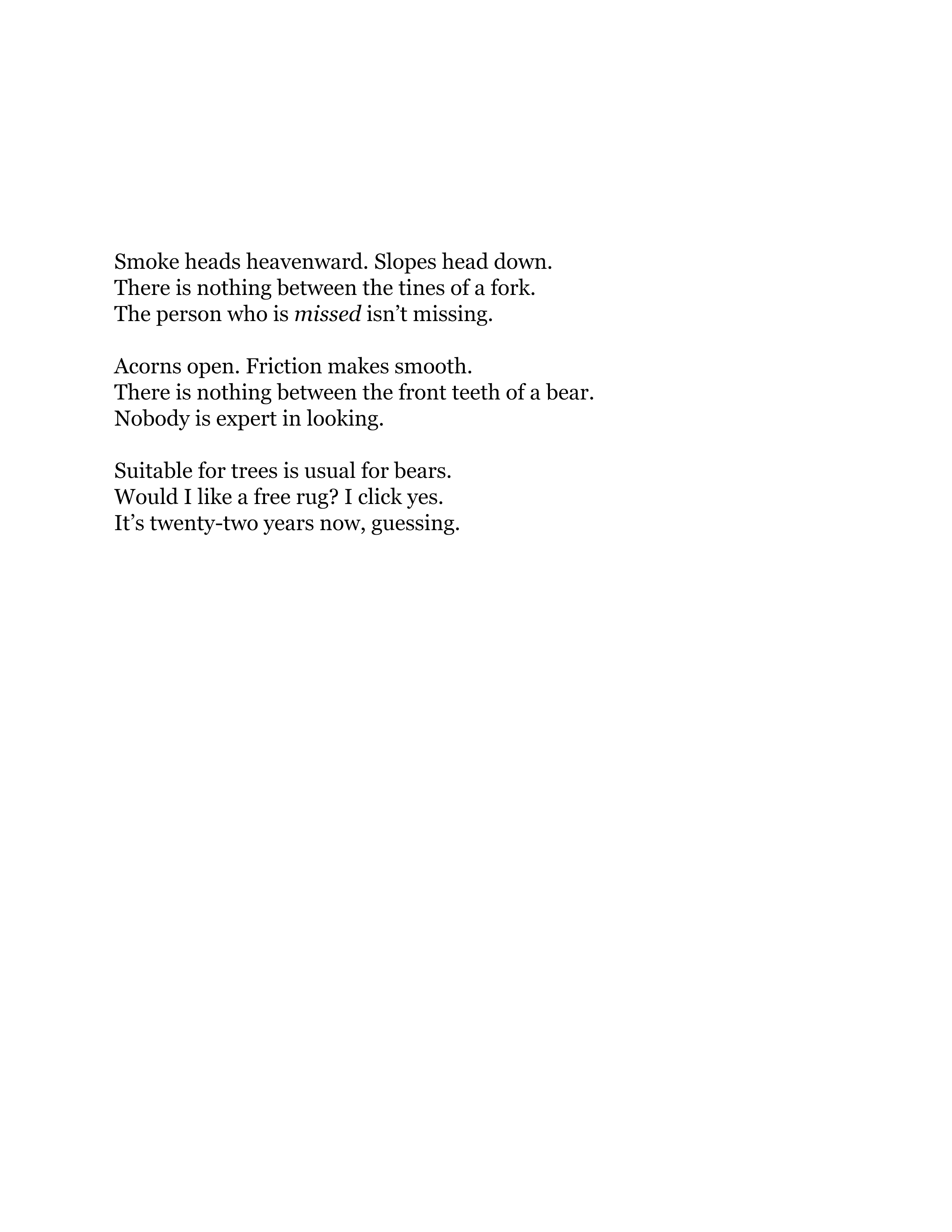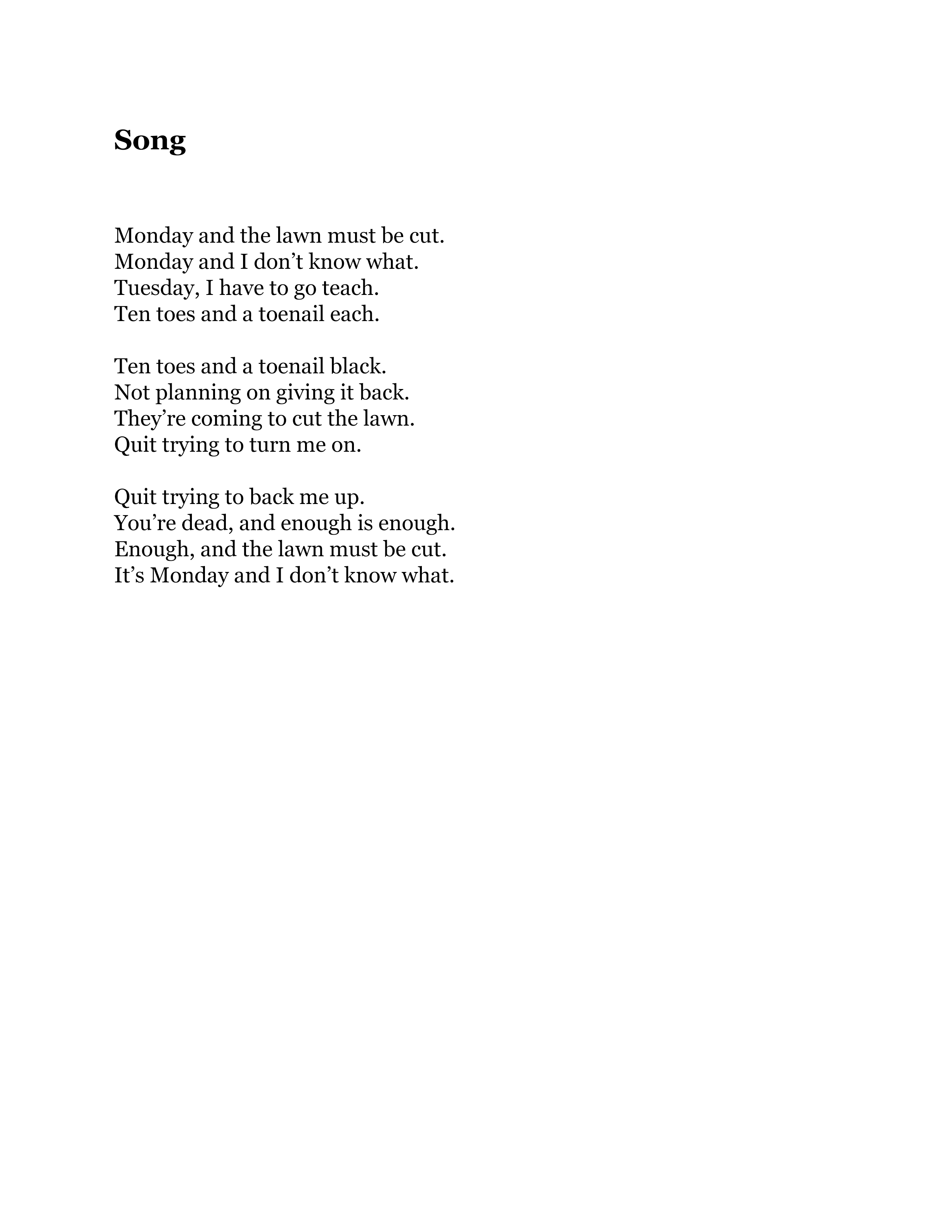3 poems by Anthony Madrid
1 essay by Sofia Fall,
on the poems of Anthony Madrid
Inexpert Instructions for Looking at These Poems
When I read poetry, I’m usually looking for instructions. I want to know how I’m
supposed to live, how I should be, what has meaning and what doesn’t and what that feels like. I know this is the wrong way to read. I know I’m supposed go in cleanly, without the contaminating stain of my own wants. But I keep finding I prefer to read hungry. It makes the pleasures of poetry more persuasive. It doesn’t really matter that poems are rarely attempting to confer advice, let alone educate. I still read every poem like it’s an answer to a question I don’t know how to ask. I think this poet might understand what I mean. These are poems that beg questions, poems that deliver the satisfaction of good answers.
Take, for example, the matter of how to perform the vulture magic. Who asked this? Nobody, possibly, but the poem makes the question necessary as it answers. In the end, I’m entirely persuaded—in fact, electrified. I find these instructions essential. The speaker’s teachings are trustworthy—there’s no coyness about what kind of magic works and what doesn’t. The poem is serious; its enchantments aren’t a joke. Its images are big and crisp: the earthenware cup, the shadow passing overhead, the eyes shut, the sizzle. The speaker functions like a guide, a friend—keeping the reader safe: “You can’t leave the water and hope.” It seems a little bit scary to perform the vulture magic, like it’s scary to hold “shadow essence” in your head, like it’s scary to be alive and in need of instruction. But this poem knows that an answer isn’t always a tidy
solution. Magic or no magic, “You’ll still have your shame. That’s not going anywhere.” There is a more important point to following these instructions. It’s enough just to have more than what you started with.
But magic is simple, maybe. Lost daughters are not. “The Poet’s Daughter Is Missing” communicates its stakes plainly: “Nobody knows where to find her.” Loss, in this poem, is a landscape the speaker constructs in short, bold strokes. Striped mountains, carpentry, caves. Sorghum and barley. As the reader moves through the poem, the lostness accumulates; the landscape unravels. Mountains slope down, “No one has ever found a daughter.” Important things are missing everywhere—between the bear’s teeth, the fork’s tines. What does this poem tell us about how to be? Sometimes there isn’t magic. There are many losses; maybe none of them are bearable. The question is how to keep going. One answer is to “click yes.” Keep
guessing.
In the end, it’s possible “Song” is the most useful kind of answer to the kinds of questions I have. The answer is no one knows what. The days keep coming in spite of our not knowing. The weeks unspool—people die and we still speak to them. We cut the lawn. Our toenails turn black. In each of these poems, there is a relentlessness that makes its own momentum. This is the force that keeps us going when we’re lost. It is, actually, very much like a song.
The five-paragraph essay isn’t supposed to contain the first-person. I’m good at following instructions, but as I get older this convention confuses me more and more. I think it’s disingenuous, perhaps a little dangerous, to go on spouting my ideas while pretending that I’m not really there. I like the bossiness and openness of these poems; I like the way they invite me to talk back. I admire the delicacy, the correctness of this answer: “Nobody is expert in looking.”




